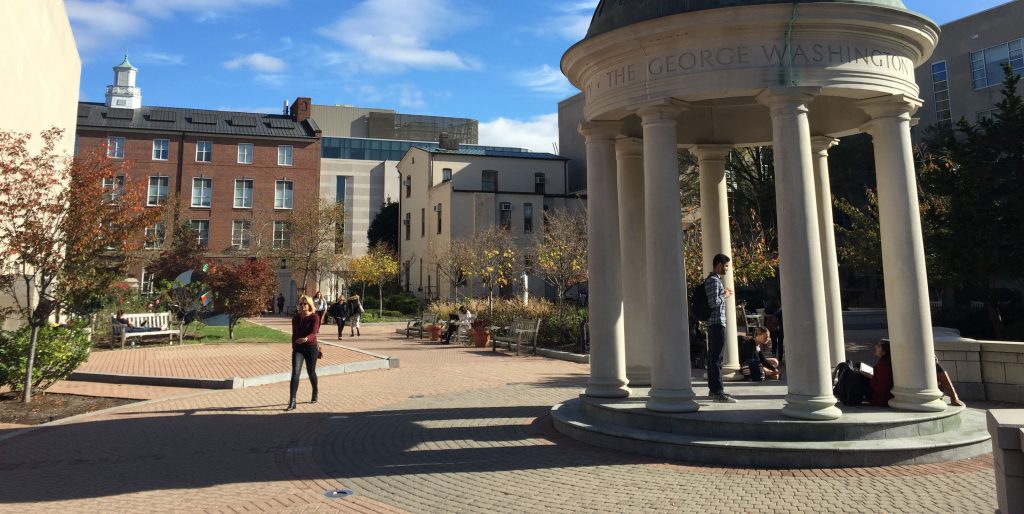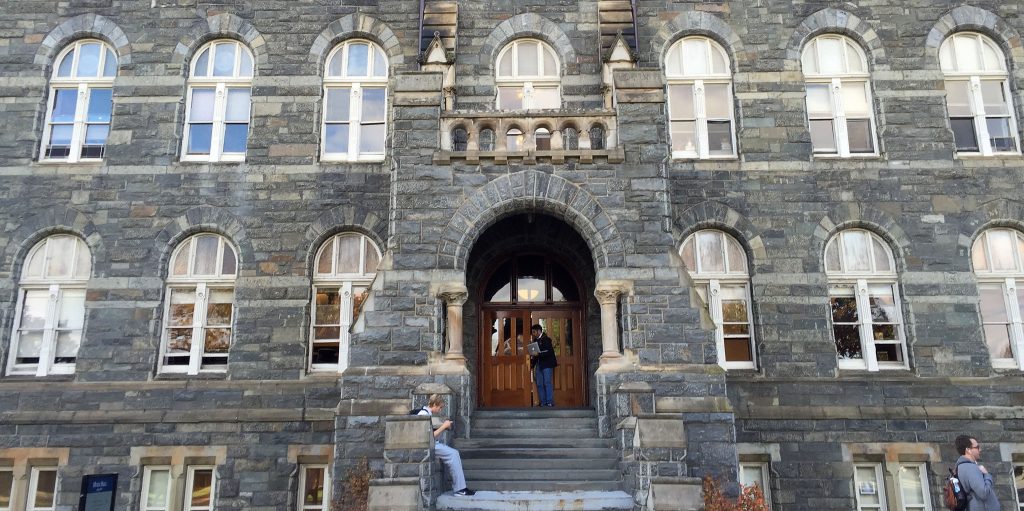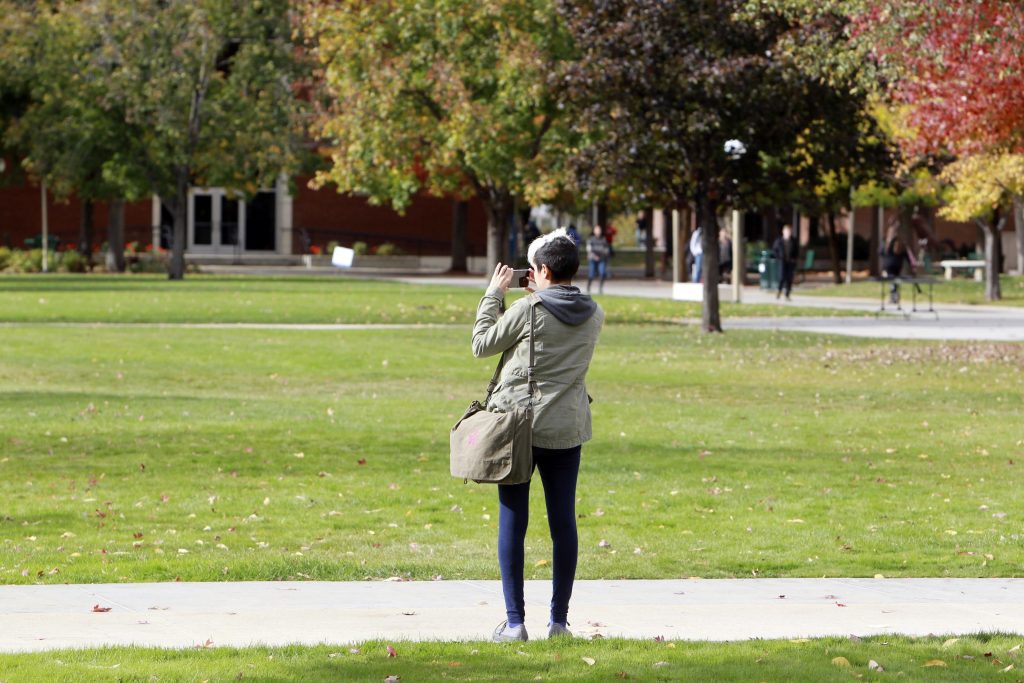If you’re currently a rising junior or senior, there’s a good chance that you’re planning to visit a few college campuses this summer. If not, you should be; campus visits are an integral part of the college planning and application process. After all, who wants to commit to spending the next four years of their life in a place they haven’t visited? Some people ask me if it’s even worth visiting campuses during the summer, considering that the campus isn’t as busy. It’s true that campus is usually a bit quieter in the summer months, but there are typically still some classes in session, and the bottom line is that most families can’t find enough time to visit all of the campuses they’d like to during the school year. Visiting in the summer is much better than not visiting at all.More than just giving you peace of mind that you can “see yourself” at the colleges you’re applying to, a good campus visit can actually increase your chances of getting in. Here’s what you need to do.

1) Research
Weeks or even months before you step foot on campus for your visit, you should be researching the school to learn more about what it offers and how it aligns with your interests. In many cases, this research should start before you register for the official campus tour, as an increasing number of schools are offering different campus tours each day. For instance, Northeastern University in Boston offers eight separate tours: one for each department in the university. You won’t know which one to choose without spending time researching these departments and their respective majors.Outside of academic departments and majors, there are many other aspects of a college experience that you should research: the student body, professors, dorms, food, the recreational center, clubs and extracurricular experiences, and the surrounding area, just to name a few. If you spend time looking into each of these aspects of university life, you’ll have a much better sense of what you want to explore during your time on campus and which questions you need to have answered in order to feel comfortable applying there.

2) Personalize
This is where your weeks of research are put into effect. If you’re like most students, you don’t have more than a half of a day to spend at any single college or university. Most official campus tours last one or two hours, so that typically leaves no more than two hours for you to explore other aspects of the campus based on your own interests and whims. In your free time on campus, you should choose two or three of those other aspects you researched and find out if they’re right for you. Personalizing your campus visits also comes down to who you see, meet, and spend time with on campus. Every official campus tour is led by a paid employee of the university, whether it’s a student or an admissions officer. These people are usually well informed and engaging, but they’re also biased, and they may not give you their true feelings on all aspects of the university. It’s imperative that you also hear opinions from unbiased people on campus, and the best source for that is current students. If you have any older friends or contacts on campus, reach out to them! If you don’t, talk to your private college counselor and/or your high school counselor; both of them may know students on campus that they can connect you with. Even if it’s just a 30-minute lunch, spending that time with a current student can give you important insights on parts of the school that the official tour may sweep under the rug.L astly, it can be worth it to try reaching out to other people whom you’d like to meet while on campus. In the right circumstances, professors and coaches can be willing to meet with prospective students and offer their insight on university life. You can find most of their contact information online. Is Chip Kelly, the turncoat football coach at UCLA, going to respond to your cold call or email? Probably not. But might Dennis Ploessel, the swimming coach at Chapman University? He may—in fact he already has given time to a few of my prospective students. Don’t be afraid to put yourself out there and ask!

3) Document
This is the aspect of the process that my students give me the most pushback on, but it’s also probably the most important. Properly researching and personalizing your campus tours but not documenting your experience afterward is like scoring 40 points in a basketball game but forgetting to keep score; it’s a nice achievement, but without registering that “win,” it could all be for naught. The reason? Most students don’t have a photographic memory of their time during each campus visit. Add that to the fact that students often visit campuses in quick succession (sometimes as many as 10 in a week), and it’s easy to see how all of these experiences can blend together. Without documenting specific thoughts on the pros and cons of your experience, you’ll be left with little more than a general feeling of the school. Why else is it important to have specific thoughts documented on each school? Aside from helping you make final determinations on where to apply and where not to apply, these notes can be helpful during the supplemental essay writing process. Many schools still have the classic “Why are you interested in our college?” essay question, and having specific memories to draw from can make writing a good answer to that question much easier. Other schools have even started asking essay questions specific to a campus visit. For the past few years, one of Santa Clara University’s supplemental questions has been “If you visited campus, describe what aspect of your visit experience most influenced your impression of SCU.” Having a unique answer to that question can set you apart from the tens of thousands of other students applying. The last part of documenting your trip is sending thank you notes to each of the people you met with on campus. Certain schools in particular really appreciate this extra step, as they believe it shows a higher level of “demonstrated interest” from an applicant.
Considering that these notes take less than 5 minutes to write, this can be one of the best time investments you make throughout the whole application process! What this all comes down to is having a plan. You should know what you want to learn during your campus visit, whom you want to spend time with, and how you’re going to document that for posterity.
This isn’t meant to take the fun out of the experience—it can still be driven by your spontaneous feelings and interests during your time at the school. But given the high level of competition at the top US universities, you owe it to yourself to grab whatever competitive edge you can.